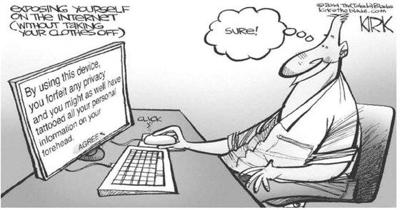
Voluntary Exclusion Program
Purpose
If you choose to ban yourself from a casino, ask to speak to the person nominated by the casino to assist with self-exclusion. This person will provide you with the self-exclusion forms and the contact details of your local Gambling Help service. The Pennsylvania Gaming Control Board offers self-exclusion programs to help individuals affected by problem gambling distance themselves from the temptation of gambling. Self-exclusion allows these individuals to voluntarily ban themselves from casinos, internet-based gambling, video gaming terminals and fantasy sports wagering. Free gambling blocker software might be just what you need if you want to self-exclude from gambling online. That's because when it comes to problem gambling, it's better to try everything you can to stop yourself from gambling rather than just try one thing repeatedly, hoping that is starts working someday. Problem gambling is a serious issue. Missouri Gaming Commission STATEWIDE SELF-EXCLUSION. The Missouri Gaming Commission, the regulatory agency that licenses and oversees casinos, administers the state's Disassociated Persons Program, which allows people to voluntarily ban themselves from all Missouri casinos.

Voluntary Exclusion Program
Purpose
If you choose to ban yourself from a casino, ask to speak to the person nominated by the casino to assist with self-exclusion. This person will provide you with the self-exclusion forms and the contact details of your local Gambling Help service. The Pennsylvania Gaming Control Board offers self-exclusion programs to help individuals affected by problem gambling distance themselves from the temptation of gambling. Self-exclusion allows these individuals to voluntarily ban themselves from casinos, internet-based gambling, video gaming terminals and fantasy sports wagering. Free gambling blocker software might be just what you need if you want to self-exclude from gambling online. That's because when it comes to problem gambling, it's better to try everything you can to stop yourself from gambling rather than just try one thing repeatedly, hoping that is starts working someday. Problem gambling is a serious issue. Missouri Gaming Commission STATEWIDE SELF-EXCLUSION. The Missouri Gaming Commission, the regulatory agency that licenses and oversees casinos, administers the state's Disassociated Persons Program, which allows people to voluntarily ban themselves from all Missouri casinos.
As a result of legislation passed in 2003, the IGC maintains the Voluntary Exclusion Program (VEP) allowing individuals to self exclude from all Indiana casinos by completing just one form. The VEP went into effect on July 1, 2004.
Enrollment
A person may sign up at any Indiana casino, at the IGC office in Indianapolis or with a designated problem gambling treatment provider for one year, five years or lifetime exclusion. The list of excluded persons is confidential. In order to sign up for the VEP, an interested participant must fill out a Request for Voluntary Exclusion form in person, witnessed by a gaming agent or IGC designee. The participant must complete the form of their own free will and not be under the influence of alcohol, controlled substances or prescription medication. Once enrolled, it is the responsibility of the VEP participant to stay away from gaming areas of the casinos. A photograph will be taken at the time the person requests voluntary exclusion.
Our office is open during the hours of 8:15 A.M. to 4:45 P.M.
For your convenience, please call 317-234-3600 to ensure that someone is available to process your application.
Removal
A person may, upon the expiration of the selected term of voluntary exclusion, request removal of his or her name from the Voluntary Exclusion Program (VEP). A person making a request for removal must do so in writing, on the appropriate form. The Request for Removal form may be completed at the IGC office in Indianapolis, an Indiana casino location or by US mail. A person making a request for removal by US mail must properly complete the form, and submit it to the Indiana Gaming Commission, 101 W. Washington St., East Tower, Suite 1600, Indianapolis, Indiana, 46204. A copy of valid government issued photo identification must be included for the removal application to be accepted and approved. The person is not removed from the VEP until the IGC accepts this form and notifies the person in writing that he/she is removed from the VEP.
It's an all-too-common headline: in June of 2018, an accountant employed by an Oklahoma City company entered a guilty plea in federal court to embezzling almost $400,000. The money had come from company credit cards and flowed into the coffers of tribal casinos. Before he headed off to serve 19 months in prison and begin restitution payments of more than $393,000, the man's lawyer accurately blamed 'his gambling addiction.'
Ban Yourself From Gambling Winnings
But had he voluntarily excluded himself from those casinos under an Oklahoma program, that man might be free today, and his employers would not have been counting their losses.
Les Bernal, national director of Stop Predatory Gambling, cites studies that show that half of the profits from commercial gambling come from addicted gamblers.
The voluntary self-exclusion program sponsored by the Oklahoma Association on Problem and Compulsive Gambling (OAPCG), and similar programs sponsored by a number of individual tribes, allows those with a gambling addiction to ban themselves from participating tribal gambling establishments for one, three, five, or 10 years. If they succumb to their urge to gamble they can be asked to leave for trespassing, and should they win at any of the casino games, the tribes have agreed not to pay those winnings.
Ban Yourself From Gambling Sites
However, one expert on the negative impact of commercial gambling says programs like the self-exclusion list are 'almost worthless,' given the pervasive extent of addictive gambling behavior of the kind that led the Oklahoma accountant to federal prison.
'The definition of addiction is loss of free will,' said Les Bernal, national director of the organization Stop Predatory Gambling. 'Not many of them are going to voluntarily walk into a casino and put their names on a list.'
OAPCG officials take no position on gambling and continue to promote the self-exclusion effort.
'We have 17 tribes participating in the statewide self-exclusion program,' said OAPCG executive director Dr. Wiley Harwell. That means that as many as 14 tribes do not, although Harwell said all of the compacts governing tribal gambling require tribes to implement some form of self-exclusion program. The advantage of the statewide OAPCG program is that all participating casinos can quickly check a jackpot winner's name against the statewide database to see if they are listed.
Harwell said OAPCG currently has just over 2,000 names on its self-exclusion list, but he noted that 'at least several thousand' would be eligible for the program due to a gambling addiction. An OAPCG study recently showed that 3.2 percent of adult Oklahomans show signs of a gambling disorder, which is almost twice the national average.
'We have 132 casinos so there is one within at least fifty miles of everyone in Oklahoma,' Harwell said, suggesting that proximity and the wide proliferation of tribal gambling are worse here than in most states.
The organization, which is partly funded by the Oklahoma Department of Mental Health and Substance Abuse Services, also provides posters, literature, and even casino employee training material advertising the gambling addiction hotline and the benefits of the self-exclusion program.
Bernal said self-exclusion programs 'give the impression that people are doing something about gambling addiction. In reality, it is part of the con that commercial gambling represents.' He cites studies that show that half of the profits from commercial gambling come from addicted gamblers, which would indicate that the 2,000 people on the OAPCG list are just a tiny fraction of those with a serious gambling problem.
In addition, only about half of the tribes operating gambling enterprises even participate in the statewide list, Harwell said.
While the tribes participating in the list include some of the largest casino operators, Harwell said those that do not and prefer to maintain their own single-site self-exclusion list simply don't have access to the broader and more effective statewide list.
Statewide participating tribes include Cherokees, Chickasaws, Choctaws, Comanches, Seminoles, and Shawnees. The tribes that are listed as members of the Oklahoma Indian Gaming Association but do not participate in the statewide OAPCG self-exclusion program are the Eastern Shawnees, Wichitas, Cheyenne-Arapahos, Fort Sill Apaches, Kickapoos, Sac and Foxes, Miamis, Pawnees, Osages, Peorias, Ottawas, Wyandottes, and Quapaws.
Harwell said there is no way to verify that all of those tribes maintain their own self-exclusion lists, although according to compact rules 'they are supposed to.'
A sampling of tribal gambling operations that are not participants in the OAPCG self-exclusion program shows that they take slightly different pathways to meet the compact requirement.
Charlie Welbourne of the Cheyenne-Arapaho operation said their casinos offer a 'self-ban' of 30 days, 60 days, 90 days, six months, or a maximum of five years. If anyone on the site-maintained list appears at the casino, 'we politely ask them to leave,' he said.
Arthur Attocknie of the Pawnee tribe said his organization's casinos maintain their own self-ban list with potential bans of three or six months, one year, or a lifetime. He said the Pawnee tribe has considered adopting the OAPCG list.
'We have quite a few on our list,' he said, noting that his casino employees are trained to recognize the symptoms of addicted or compulsive gambling. He said the overall issue of gambling addiction meshes with the broader topic of other addictions, including drugs, and how society can address them.
Ban Yourself From Gambling
Bernal said no matter who maintains the list, its primary flaw is that it 'puts the spotlight on the citizens, not on the commercial gambling enterprise that is the problem.'

